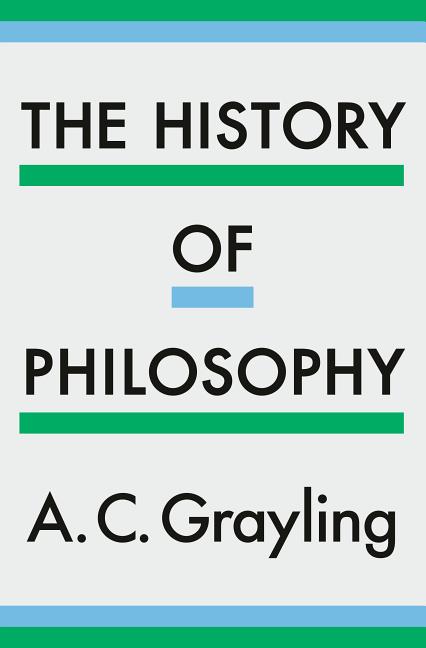

With characteristic clarity and elegance, A. But not since the long-popular classic by Bertrand Russell, A History of Western Philosophy, published in 1945, has there been a comprehensive and entertaining single-volume history of this great, intellectual, world-shaping journey. It explores some of the most creative minds in history. The story of philosophy is an epic tale, spanning civilizations and continents. The first authoritative and accessible single-volume history of philosophy to cover both Western and Eastern traditions, from one of the world’s most eminent thinkers

What Grayling hails as philosophy’s progress may appear problematic, though, to readers reluctant to join him in embracing scientific materialism (born of Baconian experimentalism) as a replacement for religious thought. A capacious and stimulating chronicle of philosophical endeavor.“A witty, learned, authoritative survey of philosophical thought.” - The New York Times Book Review


In John Locke’s decision to explore “the origin, certainty, and extent of human knowledge,” Grayling recognizes an epoch-making episode in the grand intellectual adventure we call philosophy. As readers begin that adventure in ancient Greece with Thales’ speculations about water as the primal substance and press forward through Locke and on to the dozens of other thinkers carrying the enterprise to today’s global investigations of poststructuralism and hermeneutics, they gain a deep appreciation for the unfolding dynamics of the philosophical project. Readers see, for instance, how Aristotle reacted against Plato’s transcendent metaphysics in developing his theory of matter and form how Locke reworked Hobbes’ conception of the human state of nature, so safeguarding individual liberty and limiting state authority and how Wittgenstein borrowed from Russell’s logic to articulate his analysis of language. As evidence that successive generations of philosophers have actually advanced human understanding, Grayling points not only to the ever-richer content of philosophy itself but also to new disciplines-including physics, psychology, and linguistics-incubated by philosophical inquiry.


 0 kommentar(er)
0 kommentar(er)
